(Note - all views are those of Fintech Compliance Chronicles/my personal views and not affiliated with any other organization)
(Additional Note - Let us hope that by the time you read this, I am back on LinkedIn and able to post this over there. If not, once again I’d appreciate you passing along this newsletter to anyone you think would benefit from or enjoy it - colleagues, friends, family, etc. Thank you!)
Continuing our series from Fintech Meetup 2025, with more great conversations with fantastic leaders in the space on compliance. This week I’m featuring my conversation with Lauren McCollom, SVP and Head of Embedded Finance at Grasshopper Bank.
Grasshopper is “a client-first digital bank serving small businesses, startups, and investors supporting them across the innovation economy. Our digital solutions cover small business, venture-backed companies, fintech-focused Banking-as-a-Service (BaaS) and commercial API banking platforms, SBA lending, and commercial real estate lending.”
Some background about Lauren: “Lauren McCollom leads Grasshopper's efforts to establish mutually beneficial partnerships with financial technology (fintech) and neobank companies by offering a variety of API-driven financial tools and solutions for the consumption of the fintech’s clients. During her 16-year commercial banking career, Lauren has worked alongside entrepreneurs to solve complex problems and ultimately help them build great companies. While working at Wells Fargo, and later at Square 1 Bank, she was instrumental in the formation and growth of the Startup Services groups where her skills in working with the investor community along with portfolio companies were leveraged.”
It was really interesting to hear from the perspective of the “other side,” aka partner bank, who are usually the ones getting wooed at these conferences, and refreshing to hear just how tech-first they have been which likely contributes to their success at landing innovative yet resilient fintech partnerships. Thank you again to Caliber for setting up the discussion and to Lauren for making the time! The transcript of our discussion is below and the recording is at the beginning - enjoy:
Zarik: Lauren, really excited to talk to you, today about Grasshopper. So, maybe a good place to start would be, to understand how grasshopper as a digital bank. How it's navigated the whole FinTech bank partner model, some of the history behind the organization and how it's evolved.
Lauren: So Grasshopper was started and received our charter in 2019. We are an OCC Chartered bank. The name Grasshopper actually pays tribute to Grace Hopper, who was a rear Navy admiral, and founded the language, that a lot of banks programming is built off of today, which is instrumental as a, initially a female founded bank.
We are a business bank focused on serving the innovation economy and small and medium sized businesses. We have our direct business offerings, to businesses that come to our website to sign up for our services. The VC and private equity community as well. And then indirectly, we have embedded finance, which is the group that I lead.
And the efforts there are really to forge partnerships to enable those financial technology companies and non-bank entities to serve their customers with bank products and services. So deposit accounts, payment facilitation, card issuing as well. And we look for a number of things in the partnerships, but really try and focus first on a alignment culturally with the organization, that they have a strong focus to compliance and risk mitigation and, that they want to get into a partnership that's gonna be long term, that's gonna be mutually beneficial for all of us, mostly including their end users who are gonna benefit from the additional products that we're leveraging in the partnership.
Zarik: Got it. And your view on their end users, talk to me about how Grasshopper's philosophy is towards those end users. Like do you see them as your customers.
Lauren: Our FinTech partner knows their customers best. But ultimately their users are our customers as they're getting onboarded at the bank, and leveraging our products and services. But we think about it kind of in the partnership effort that it is. Our fintechs do know them better than us.
In some instances in their behaviors, they may be serving them with other products and services outside of banking. Which gives them that other lens into, being able to be the best first advocate for, keeping the banking infrastructure that they're bringing to us safe. Ultimately they are our clients and we want to make sure that the products and services that we're building, that our roadmap of product delivery aligns with what our FinTech partners need to serve their end users and what they're asking for so that we can all mutually, meet the needs of those users.
Zarik: Got it, got it. Just thinking back to what you said about your origin story, you look at a lot of the partner banks that are out there without getting into any specific names, but you see many instances where you have legacy institutions that are small in size, tried to get in the space of basically sponsoring and partnering with fintechs and they, they tend to run into a lot of trouble.
So you all were established in 2019. Got your charters. That's great. I'm curious, like maybe talk a little bit about how you think your relatively young age as a bank is kind of a competitive advantage to the extent that it can be when you're working with, uh, fintechs.
Lauren: I think it allows us to have foresight into speed and transparency. I know in my history, Working with, startups and founders, I've been in banking for 20 years and I've been working closely with those companies that are at that infancy stage. And, when you are building, you need to know kind of what is the path look like.
And so I think that taking that lens and approach to partnership with a strong foundation of risk mitigation and compliance that our team has, we were able to leverage the efficiencies of being a digital bank of, wanting to build this as a line of business within the organization. It wasn't something that we built at the beginning of the bank's, infancy or when it was first chartered, but it was something that was in the vision of it.
One of the things I read as I was looking to join the bank --I was like, oh, they wanna do this, this is something I've wanted to do for many years in my career at different organizations. And so there was, overwhelming acknowledgement of that this is something the bank will be getting into.
And when we finally have the opportunity to do so, with the hiring of Mike Butler [CEO] and a couple other team members that came over from Radius Bank, Chris Tremont [Chief Digital Officer] as well, they were instrumental in banking as a service, going back to 2013. I kind of raised my hand and said, I need a team that knows what they're doing.
This is really hard to do from scratch. And so taking the best practices that they had and learnings that they had from their prior organization really kind of gave us a leg up. Also having a board that knows what we're doing is bought in on what we're doing and very supportive of the efforts that we're putting forth to grow this business. Like all of that aligns so that we're not retraining people to figure out how to do this. It is just kind of core and native to what we do as an institution.
Zarik: That part about the retraining, really resonates. And, you talk about the board-- as a former internal auditor, hearing for so long the board is the one who's responsible-- like having a dynamic forward thinking board, which understands its responsibility and influence? That's gotta be super fantastic.
Lauren: It's a powerhouse I think. And it really allows us to set ourselves apart, both with the regulators and the partnership and relationship that we can forge with them as we look to develop more and more products to grow the bank, in multi directions that we wanna go.
So, it's nice to know that what I'm doing and the efforts on the ground are known and appreciated by the folks that are leading the organization, C-Suite and board.
Zarik: Yeah, embedded finance partnerships. At least the last couple years from my vantage point, one of the hottest topics in the space right now, and I think unfortunately recently, 'cause so many folks can't seem to get it right and they're getting in trouble.
So I'm curious, maybe before we dig further into that, the concept of help, you can't do it alone. You've, recently partnered with Cable, and I would love to learn a little bit more about that relationship. Selfish reasons, being compliance person, you're a compliance focused platform.
Talk to me a little bit about that and how that has helped create efficiencies, especially from a risk and compliance perspective.
Lauren: From my vantage point appreciation is that it allows our risk team to have visibility across all of the BSA assurance, I believe is what they're leveraging it for. And as a result, it's not doing spot monitoring of historical information, but it is real time and a hundred percent exposure to our end users in the system.
So that really helped. Give a huge lens into what's going on within our programs. And it's critical and having the API integrations that they enable makes it seamless or smooth for our customers to provide information that we require and takes out a lot of the back and forth.
So that just saves time. And also just the robustness of the information and the access to the information I mean, it's paramount in running a client organization.
Zarik: Sure. Maybe not necessarily like specific to Cable, but just generally, the fact that you're partnering with them I think is fantastic. I'm kind of curious, just zooming out, alluded to some of the troubles that some of your peer partners, sponsor banks may have, let's say consent orders unfortunately getting in trouble.
Regulators, like this has been the whole backdrop of the BaaS movement for at least a couple of years, if not the last three years. And potentially maybe things will change now, but I'm just curious, what do you think, whether it's from a compliance angle or not from a compliance angle, how do you think Grasshopper is able to, succeed, if you will, where others maybe have had challenges?
Lauren: I think that we take compliance as a competitive advantage. And I know there's, different ways to look at that, but, we really think that we're able to meet the needs of our customers in a compliant manner. We can do it efficiently and effectively is really a huge piece. With the resources, tools, and humans that we have augment the technology that we utilize with the human interaction, it really sets us apart to be able to do things in a way that's gonna allow us to do more.
I don't wanna say with less because it's not. It's just, with assistance to be able to do more. So I think that we really are able to use the compliance resources team and infrastructure that we have to stay lean and efficient in the areas while not compromising on any risk mitigation tools or compliance areas.
Zarik: Obviously the way the business model works and the way the relationships work. You're essentially providing your charter and the fact that you are a bank in service of these fintechs. So do you find that your approach as in considering compliance as a competitive advantage, partnering with Cable, what have you seen from the actual FinTech partners, the technology companies? Do they appreciate it. Do they give some initial resistance and then you have to do some convincing. The other efficiencies and advantages you bring as partner bank ,do they just dwarf any concerns about compliance? What's your take on the reaction from the partners that you work with, having such a buttoned down house from a compliance perspective?
Lauren: I think that goes back to the thing I said about selecting our partners, right? We get to work with partners and choose to work with select fintechs that are aligning with the values of how we're organizing our programs. And when we say this is something that's gonna help it be easier and more streamlined and more robust of a compliance program overall, that's gonna keep the banking system safe and sound, and it's gonna make sure that your customers are well served. Quite frankly, maybe not at the beginning, if you have to do an integration, there's gonna be some resources that are gonna have to be put towards that. But over the long term, really help to lift the ability for them to do more and maintain a strong foundation.
Zarik: Short-term pain for long term gain.
Lauren: But I think that the technology that Cable's able to put through really anything that they can, do, whether it's our technology partners integrating the Cable APIs to streamline that for us as well is another advantage that our partners get to benefit from.
Zarik: Maybe zooming away from compliance a little bit, I think it's actually a goal of regulators and why I think they aren't just saying, alright, this whole bank FinTech partnership space, let's just get away from it. But when you look at why embedded finance is taking off so much like the financial inclusion angle, just gimme your thoughts, if you don't mind, on how Grasshopper thinks about that as it partners with FinTech and maybe just some, examples or instances that you can think of that you're able to mention where you've seen, your involvement actually contribute to that scenario of financial inclusion, unlocking access to financial products that individuals wouldn't have had otherwise.
Lauren: The simplest thing is making wire transfers, right? I tried to go wire to make my down payment for my home and it was during the pandemic and I had to make an appointment at a branch, and I was like, why do I have to make an appointment? So there was resistance there.
If I could just do it online. Do it through the bank itself. Which I wasn't able to because of the dollar amount. I needed to go in person. Like allowing our product to be digitally delivered to consumers, allows them to do what they need to do, when they need to do it, where they need to do it, and the financial provider of their choosing, and really get the best of both, right?
They get a lovely user experience and they can do their banking when and how they need to, it really opens the door for people to be able to do, and transact and have access to, products and services that they may not otherwise be getting from their direct financial institutions.
Zarik: It's very powerful. I mean, when you really stop and step back and think about it. I was talking with someone else who was elaborating on the legacy system of banking and the way it's set up is whether it's intentional or not, designed sometimes to exclude certain folks from being a part of the system.
And so, I think it's great that institutions like yours, your partners, obviously there's components like we're a business, we want to make money, but you're giving access to customers who otherwise would've had no recourse. So I, I think it's, it's fantastic.
So, I'm curious though, like on the topic of AI, does this come up a lot in your conversations with your partners? Is it something that you as an institution, are already incorporating into your operations, especially from an embedded finance perspective?
Is it something more that you're happy to partner with third party institutions to supplement your capabilities? What's grasshopper's take on AI particularly when it comes to embedded finance capabilities?
Lauren: I'm not seeing it much yet with my partners directly in terms of our interaction, or even the bank's operational interaction.
I mean, we're certainly utilizing it for efficiencies, right? It's nice to not have to write the full email and have some help with that crafting so we can be more efficient in reaching our customers and prospects and things like that. But, certainly on the compliance side, I think we're utilizing it in a couple of different areas, to really help bring those efficiencies to the humans that are behind the scenes.
So there's a lot of data checking and sources that need to be evaluated and you can leverage the AI to be able to pull those sources together, raise relevant information, and allow the expert that we have on staff to focus in on areas that are most efficient and effective of them doing their job well.
Zarik: Yeah. And so, to kind of try and wrap this up in a bit of a bow. What do you think the future holds for this space? Do you think that there's more potential for these kind of partnerships being transformative. Do you see opportunities for even more regulatory enablement? What can you predict, without holding you to it, about the space?
Lauren: Without a crystal ball? Sure. I'm very bullish on the space. I mean, not because I'm a leader in it and I'm excited for the customers and clients that we work with, but also because I love to see the transformation that's taking place, right? Getting access to financial services across the board, even for many of the business customers that we support at Grasshopper, allowing them to do more, quicker, faster payments, right? Allowing them to do it in a compliant manner and allowing them to do it anywhere they want with the FinTech provider that they choose, to have access to all of the financial information that they have across a number of different, companies is also really key for them to be able to take control of their, financial health and wellbeing.
Zarik: I said that was the last question, but now you mentioned this so I couldn't resist. Open banking 1033 rule. From that perspective, do you think that there's opportunity there? Because the whole premise of that is giving consumers centralized control of all their data across different institutions. Do you have a view on that.
Lauren: I mean, my personal view is that I'd love to see more access and availability to the data. I, though, haven't seen any restrictions on my side being able to get the data that I need to the partners that I choose. So I might not be a power user in that way to be able to answer that.
But I think that data sharing and doing it in a compliant manner, doing it with the consent of the user, consent of the FinTech, doing it in a safe manner. As long as those things check the box, I'm all for it.
Zarik: It's great to hear that it's top of mind for you clearly and your organization.
And, just want to thank you for the time and yeah, look forward to seeing all the success that Grasshopper will have in the future.
Lauren: Thank you for chatting with me.
Zarik: Likewise.


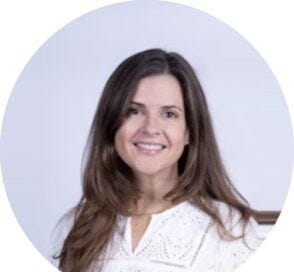
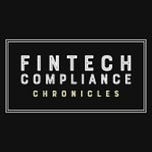






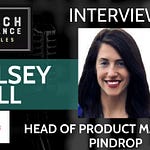
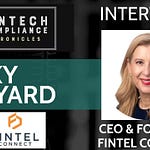
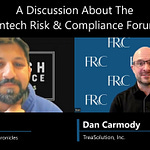
Share this post